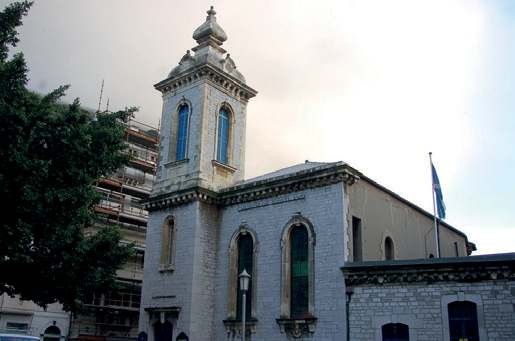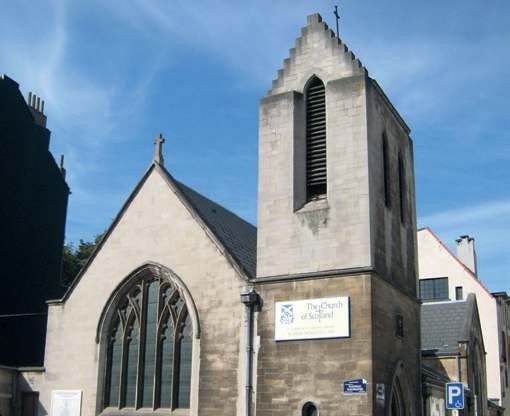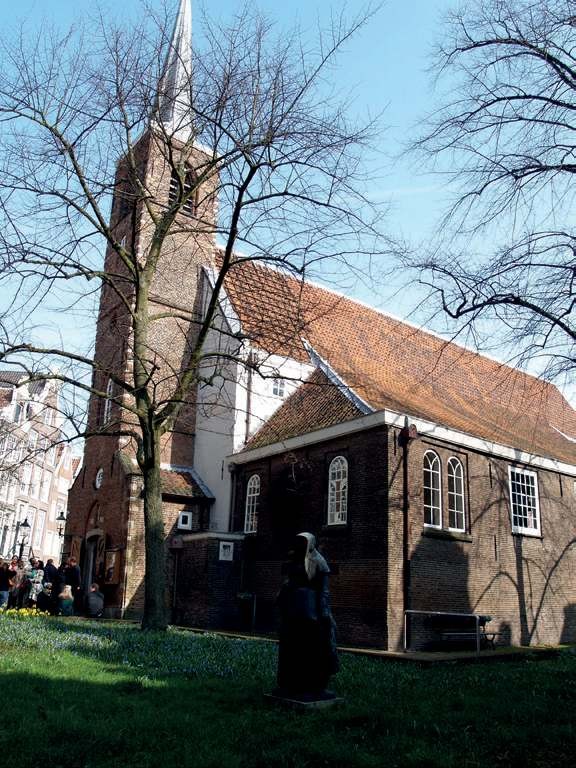Watch this space
With Britain due to leave the EU in a year, Thomas Baldwin looks at how the Church of Scotland, at home and abroad, is preparing for Brexit.
COVER
IN the current febrile political climate, it is often hard to say how things will look next month, let alone in a year.
At the time of writing, 19 months after the UK voted for Brexit and nearly a year since Prime Minister Theresa May triggered Article 50, about all that can be said with any certainty is that the UK is scheduled to leave the European Union at 11pm on March 29 2019.
The Chancellor of the Exchequer, Philip Hammond, has just told business leaders in Davos that this will involve the UK and EU economies moving apart ‘hopefully very modestly’. This has upset pro-Brexit politicians and triggered a fresh outbreak of speculation about a challenge to May’s leadership, with the list of bookies’ favourites for her replacement made up mostly of committed Brexiteers.
There has also been an upsurge in talk about a second EU referendum, with one poll suggesting the British public favour holding another vote by a 16-point margin, and even ex-UKIP leader Nigel Farage publicly warming to the idea, to ‘finish the whole thing off’.
Who knows what the situation will be by the time you are reading this?
Meanwhile, assuming Brexit does happen, the exact relationship between the UK and EU, and what it will mean for UK citizens living in the EU, EU citizens living here, and every aspect of the UK economy from business and finance to industry, agriculture and fishing; and the laws that will govern everything from employment to environment protections, are still up for grabs – along with questions over whether there will be a transitional period and, if so, for how long; and what will happen to the Irish border.
Also uncertain is what this will mean for remain-voting Scotland’s relationship with the rest of the UK, with the Holyrood Government suggesting it will push for a second independence referendum if it is unhappy with the outcome of the Brexit negotiations.
LEADING THE CONVERSATION
Under the circumstances, it is hardly surprising that asking various councils, committees and departments in the Church of Scotland how they are preparing for Brexit – in terms of possible repercussions for the organisation – results in little more response than that a watching brief is being kept.
The Legal Questions Committee is keeping an eye on possible changes in human rights legislation; while the Law Department warns of ‘prospective issues around workers and immigration status which might affect charities from an employment viewpoint’, but the solicitor working on it doesn’t expect any change ‘for at least a couple of years post 2019’. However, one area in which the Church is hoping to be active is in leading the conversation about what sort of relationship we want with Europe – and what sort of society we want here – after Brexit.
Also uncertain is what this will mean for remain-voting Scotland’s relationship with the rest of the UK, with the Holyrood Government suggesting it will push for a second independence referendum if it is unhappy with the outcome of the Brexit negotiations.
Last year’s Church and Society Council report to the General Assembly noted: “The Church is in a strong position to bring people together across political and social divides to explore Scotland’s future in a mature, measured way, a way that inspires but does not mislead, and a way that reflects God’s desires for each of us and the world around us.”
To that end, the Council and its partners are working on a few projects aimed at furthering the conversation.
“The referendum was a decision to leave the EU, it wasn’t a decision about what to do afterwards”, says Chloe Clemmons, the Scottish Churches Parliamentary Officer. “There has been no real public engagement on this. The UK Government should have done more.”
Chloe is developing an engagement exercise with three Scottish coastal communities, which have multiple interests potentially impacted by leaving the EU, including fishing, agriculture and tourism. She has spoken to Church members regularly since the Referendum result was announced, seeking their personal reflections to contribute to policy makers.
“We’re asking what does Brexit look like, and what should it look like?” she says. “There has been quite a lot of conversation about the economy. A number of people spoke about their concerns, in one case what would the community do without migrant labour, and in another where the local industry’s main market is in Europe.
“One of the concerns is about people’s ability to maintain relationships with families living abroad; and someone from Eco-Congregations was mainly worried about environmental protection, and what more we need to do out of the EU.”
Another initiative that is being relaunched is the ‘Conversation Welcome’ website, which was first set up after the referendum by the Joint Public Issues Team (JPIT) – the partnership of the Church of Scotland, Baptist Union of Great Britain, the Methodist Church and United Reformed Church to engage with issues of justice and inequality.
The website, which is expected to be ready in time for the JPIT’s conference, on March 17 in Manchester, reflects the churches’ concern that the most vulnerable people in society could suffer in the political upheaval.
“When there are significant periods of transition in a country’s life, those on the margins often tend to lose out”, says Andrew Tomlinson, Associate Secretary with the Church and Society Council. “The question with Brexit is how do we ensure rural communities, and those already experiencing poverty, don’t get a rough ride from it.

Church of Scotland churches in Europe. St Andrews Gibraltar by Dan

St Andrews Brussels by David Edgar

English Reformed Church Amsterdam by Ernest Mcgray jr
“There will be much complexity to sort out, and in situations like that those with the largest voices tend to get their way, while those with the quieter voices get what they are given.
“We need more public engagement, more conversation, ensuring that a broad range of voices is heard, and individuals and communities are heard, not just the big lobby groups.”
Of course, the Church is in potentially an awkward situation in that it is a long-time supporter of the European Union, and – unless and until a General Assembly votes otherwise – its policy remains that the UK should be a member.
“Church policy was never an instruction on how to vote”, insists Andrew. “And none of the other JPIT partners have a position on it.”
One thing they are clear about is that the conversation should not be about repeating the in/out arguments, but about what happens next.
“A lot of time has passed and in a way it is more important to talk about what we want to achieve now”, says Chloe. “We don’t have to start with ‘should we be in or out of Europe?’”
Andrew adds: “We had a vote that was very divisive. There was – and perhaps still is – an opportunity to come up with a vision that is more unifying.”
THE VIEW FROM EUROPE
Among the groups of people most keenly interested in the Brexit negotiations are the members of the Church of Scotland congregations in Europe. The Kirk has 10 churches in EU member countries, plus another two in closely-linked Switzerland, and one in the British Overseas Territory of Gibraltar. They serve a mixture of British expats, students, tourists and others.
Canvassing the opinions of ministers in these churches results in a range of responses, from serious concern to a slightly ironic ‘Brexit, what Brexit?’
The latter comes from the Rev Ewen MacLean, who is minister of St Andrew’s Church, Gibraltar. He says that the headland is currently booming, but that its future prosperity does depend on whether the border with Spain remains open.
Ewen says: “So far, although we are very aware of the Brexit negotiations, our lives have not been directly impacted. But our comfortable existence here depends on the frontier remaining fluid… a blockade of any sort, even for a short time, would be a disaster, as 99% of goods and thousands of workers come into Gibraltar every day. It is ironic that ‘the free movement of people’ which led to Brexit is the lifeblood of Gibraltar.
“While not wishing to ‘be at ease in Zion’, we are thankful that, so far, our lives have continued normally. We remain hopeful and watchful and prayerful.”
The minister of Brussels St Andrew’s, the Rev Andrew Gardner, says that the feeling within the Kirk Session is ‘deep sadness’ over the vote, with concern over how the UK is viewed by the rest of the world, and the rise of far right parties elsewhere in Europe.
He adds that there is concern in the Presbytery for particularly groups of people, especially British retirees in Spain: “This sector of the community feel particularly vulnerable on two issues: firstly, what will be put in place re: the present bilateral agreement on health cover; and secondly, the devaluation of the pound since the Brexit referendum has had a huge impact on pensions.”
Andrew and his wife Julie have been in Brussels for over 13 years and have two daughters, who grew up and were educated in Belgium. He says: “They are true Europeans, like many of the young people in our congregation. They were deeply upset by the Brexit vote.
“As a result all of us are pursuing Belgian nationality (which) preserves the right for us to live and work in continental Europe, and for Julie and I will protect our pension rights in both countries where we have paid into the system.”
With so much still up in the air, the general feeling in Europe, as at home, seems to be that there is little more to be done about Brexit than to ‘watch this space’.
The Rev Lance Stone, minister of the English Reformed Church in Amsterdam, says: “We actually have a very small British contingent in the congregation and so it Is not directly relevant to the vast majority.
the Church is in potentially an awkward situation in that it is a long-time supporter of the European Union, and – unless and until a General Assembly votes otherwise – its policy remains that the UK should be a member.
“The Mayor of Amsterdam did organise a meeting not long after the vote for all British people who were concerned about the effects of Brexit and I know that several of our Brits, including me, went along to that. It was helpful in answering some questions and addressing some concerns but with so much uncertainty then – as now – there were limits to what could be said.”
And the Clerk to the Presbytery of International Charges, the Rev Jim Sharp, says: “The International Presbytery has not formally discussed Brexit or its possible implications – primarily because, as a Presbytery, there is really nothing that we can do to influence what will happen. That said, in our Presbytery Planning process, we are very conscious that a ‘hard Brexit’ [in which the UK would leave the single market and customs union] could potentially have significant implications for some of our congregations…
“I think it’s fair to say that the vast majority of UK citizens living in Europe outside the UK would be considered ‘Europhiles’ – though there is, of course, always danger in generalisations.
“Certainly I know, mainly through my Church of Scotland connections in the International Presbytery, a considerable number of UK citizens living in Europe who are worried about the possible implications of a ‘hard Brexit’.
“I know some who are now in the process of applying for citizenship of the country in which they have been living for many years so that they can continue to benefit from holding a burgundy-coloured EU passport rather than looking forward (back?) to the day when they will be given another blue one! And, if they don’t qualify for that kind of passport, they are checking their family tree to see if they have an Irish ancestor somewhere that would enable them to apply for an Irish one!
“Thinking of my own situation and that of others who are members of our congregations in the International Presbytery, many of us, I suspect, are hoping and praying that there might just be a second referendum, once the final arrangements for Brexit have been negotiated between the UK and the EU, to allow UK voters to accept or reject that ‘final package’.
“Depending on which political commentator you listen to (and I listen to many of them!), this does not seem to be a very likely prospect, at least at the moment. But who knows? I’m sure God does – but, as usual, it may take us all a bit of time to hear what He has to say.”